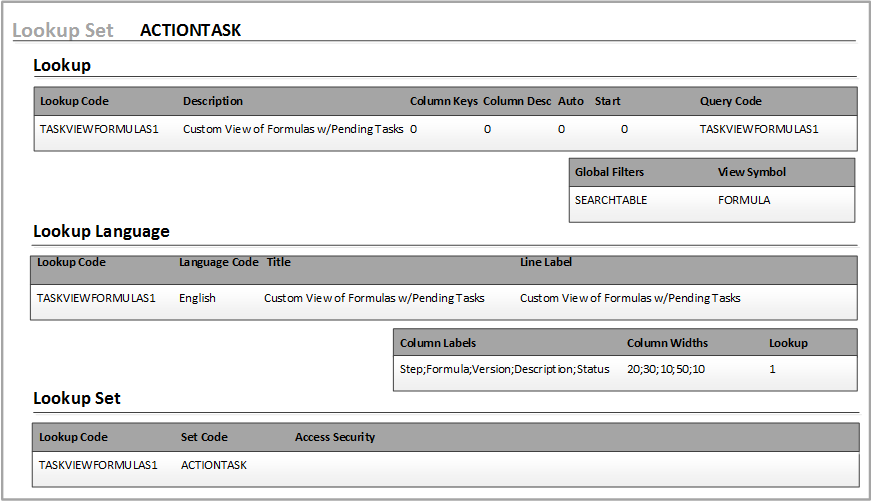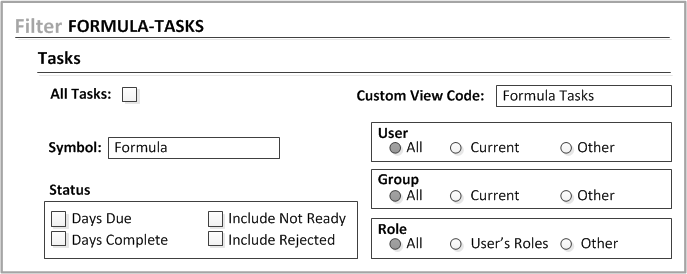Configuring a formula view for pending tasks
See Configuring the Lookup tab, Configuring the Lookup Language tab, and Configuring the Lookup Set tab.
Columns that are not shown use the default values. In FSLOOKUPLANG, use an empty entry (;;) or “0” to hide columns in COLUMN_WIDTHS.

Create the filter for pending tasks in the Filter form. Select the custom view from the Custom View Code list.
